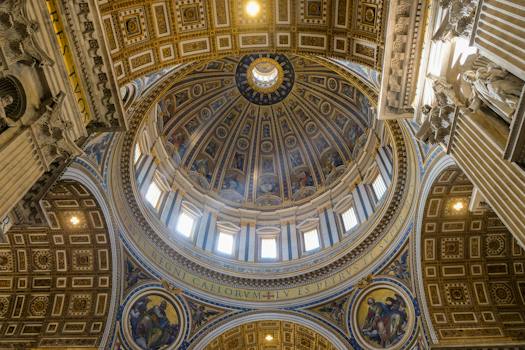

-
Table of Contents
"The Decline of Christianity and the Rise of Atheism: Unveiling the 10 Key Factors."
Introduction
The decline of Christianity and the rise of atheism have been significant trends in recent years. This shift can be attributed to several key factors that have influenced people's beliefs and attitudes towards religion. In this introduction, we will explore 10 key factors that have contributed to the decline of Christianity and the rise of atheism.
Historical Factors Influencing the Decline of Christianity
The decline of Christianity is a complex phenomenon that can be attributed to a variety of historical factors. Understanding these factors is crucial in order to gain insight into the rise of atheism and the changing religious landscape of the modern world. In this article, we will explore ten key historical factors that have influenced the decline of Christianity.
One of the most significant historical factors is the Enlightenment period, which emerged in the 18th century. During this time, there was a shift towards reason and rationality, challenging traditional religious beliefs. The Enlightenment thinkers emphasized the importance of science and empirical evidence, which clashed with the dogmas of Christianity.
Another factor that contributed to the decline of Christianity was the rise of secularism. As societies became more industrialized and urbanized, people began to prioritize worldly matters over religious ones. The separation of church and state became more pronounced, leading to a decline in the influence of Christianity on public life.
The scientific revolution also played a crucial role in the decline of Christianity. As scientific discoveries challenged religious explanations of the natural world, many people began to question the validity of religious teachings. The theory of evolution, for example, contradicted the biblical account of creation and further eroded the credibility of Christianity.
Furthermore, the atrocities committed in the name of Christianity throughout history have also contributed to its decline. The Crusades, the Inquisition, and other acts of violence and intolerance have tarnished the image of Christianity and alienated many people. These historical events have led to a loss of trust and faith in the religion.
The rise of other religious traditions and philosophies has also impacted the decline of Christianity. The spread of Eastern religions, such as Buddhism and Hinduism, as well as the popularity of New Age spirituality, have provided alternative paths for spiritual seekers. These diverse options have attracted many individuals who are disillusioned with Christianity.
Moreover, the increasing influence of secular ideologies, such as Marxism and communism, has further marginalized Christianity. These ideologies promote atheism and view religion as a tool of oppression. As they gained power in various parts of the world, they actively suppressed religious practices and institutions, leading to a decline in Christianity.
The advent of modernity and the emphasis on individualism have also contributed to the decline of Christianity. In a rapidly changing world, traditional religious institutions and doctrines have struggled to adapt to the needs and desires of individuals. Many people have turned away from organized religion in favor of a more personalized spirituality or atheism.
Additionally, the rise of globalization and the interconnectedness of the world have exposed people to different cultures and belief systems. This exposure has led to a questioning of one's own religious traditions and an openness to alternative perspectives. As a result, many individuals have abandoned Christianity in favor of atheism or other religious traditions.
Furthermore, the sexual revolution and changing attitudes towards gender and sexuality have also impacted the decline of Christianity. The traditional teachings of Christianity on these topics have been seen as outdated and oppressive by many individuals. As society becomes more accepting of diverse sexual orientations and gender identities, Christianity has struggled to adapt and retain its followers.
Lastly, the decline of Christianity can also be attributed to generational shifts. Younger generations are increasingly identifying as atheists or agnostics, rejecting the religious beliefs of their parents and grandparents. This generational divide has contributed to the overall decline of Christianity in many parts of the world.
In conclusion, the decline of Christianity is a complex phenomenon influenced by a variety of historical factors. The Enlightenment, secularism, the scientific revolution, historical atrocities, the rise of other religious traditions, secular ideologies, modernity, globalization, changing attitudes towards gender and sexuality, and generational shifts have all played a role in the decline of Christianity. Understanding these factors is crucial in order to grasp the rise of atheism and the changing religious landscape of the modern world.
Societal Shifts and Cultural Changes Contributing to the Rise of Atheism

Societal Shifts and Cultural Changes Contributing to the Rise of Atheism
In recent years, there has been a noticeable decline in the number of people identifying as Christians, accompanied by a significant rise in atheism. This shift in religious beliefs can be attributed to various societal and cultural factors that have shaped the way people view religion and spirituality.
One key factor contributing to the rise of atheism is the increasing emphasis on individualism in modern society. As people become more focused on their own personal goals and desires, they may question the existence of a higher power that dictates their actions and choices. The idea of relying solely on oneself and not needing a religious framework to guide their lives becomes more appealing to many individuals.
Furthermore, the advancement of science and technology has played a significant role in the decline of Christianity and the rise of atheism. As scientific discoveries continue to provide explanations for natural phenomena that were once attributed to divine intervention, people may find it harder to believe in a higher power. The availability of information and access to diverse perspectives through the internet has also allowed individuals to explore alternative viewpoints and question traditional religious beliefs.
Another factor contributing to the rise of atheism is the increasing acceptance and visibility of secularism in society. In many Western countries, there has been a shift towards a more secular approach to governance and public life. This has led to a decrease in the influence of religious institutions and a greater emphasis on secular values such as reason, logic, and evidence-based decision making. As a result, individuals may feel less compelled to adhere to religious beliefs and instead embrace atheism as a rational alternative.
Moreover, the decline of organized religion and the erosion of religious authority have also played a role in the rise of atheism. Scandals and controversies involving religious leaders have led to a loss of trust in religious institutions, causing many individuals to question the validity of religious teachings. The increasing number of people who identify as "spiritual but not religious" reflects a desire for a more personal and individualized approach to spirituality, free from the constraints of organized religion.
Additionally, the changing demographics of society have contributed to the rise of atheism. Younger generations, in particular, are more likely to identify as atheists or non-religious. This can be attributed to a variety of factors, including increased exposure to diverse cultures and beliefs, a greater emphasis on critical thinking and skepticism, and a rejection of traditional authority figures. As these younger individuals become the dominant demographic, the influence of atheism is likely to continue to grow.
In conclusion, the rise of atheism can be attributed to various societal shifts and cultural changes. The increasing emphasis on individualism, the advancement of science and technology, the acceptance of secularism, the decline of organized religion, and the changing demographics of society all contribute to the decline of Christianity and the rise of atheism. As these factors continue to shape our society, it is important to understand and respect the diverse range of beliefs and perspectives that exist.
Impact of Science and Rational Thinking on the Decline of Christianity
The decline of Christianity and the rise of atheism can be attributed to various factors, one of which is the impact of science and rational thinking. Over the past few centuries, scientific advancements and the promotion of rational thought have challenged traditional religious beliefs and led to a decline in religious adherence.
One key factor in the decline of Christianity is the increasing acceptance and popularity of scientific explanations for natural phenomena. As scientific knowledge has expanded, many people have turned to science to understand the world around them. The discoveries of evolution, the Big Bang theory, and the age of the Earth have all contradicted literal interpretations of religious texts, causing some to question the validity of religious teachings.
Furthermore, the scientific method, with its emphasis on empirical evidence and logical reasoning, has provided an alternative framework for understanding the universe. This approach has gained credibility and respect in society, leading many to prioritize scientific explanations over religious ones. As a result, the authority of religious institutions has been undermined, and their teachings have been called into question.
Another factor contributing to the decline of Christianity is the rise of rational thinking. Rationality, which emphasizes critical thinking and evidence-based reasoning, has become increasingly valued in modern society. This shift has led many individuals to question religious beliefs that lack empirical evidence or logical coherence.
Moreover, the spread of education and access to information has played a significant role in the decline of Christianity. As more people gain access to education, they are exposed to a wider range of ideas and perspectives. This exposure often leads to a questioning of religious dogma and a reevaluation of personal beliefs. In addition, the internet has made information readily available, allowing individuals to explore alternative viewpoints and challenge religious teachings.
The decline of Christianity can also be attributed to the changing social and cultural landscape. In many Western societies, there has been a shift towards secularism and a decline in religious observance. This shift is influenced by factors such as increased religious diversity, changing social norms, and the erosion of traditional religious authority. As society becomes more secular, religious beliefs and practices lose their prominence and influence.
Furthermore, the rise of atheism and secular humanism has provided an alternative worldview for those who reject religious beliefs. Atheism, which rejects the existence of a deity, has gained traction in recent years, particularly among younger generations. This rise in atheism is often fueled by a desire for evidence-based beliefs and a rejection of religious dogma.
In conclusion, the impact of science and rational thinking on the decline of Christianity cannot be underestimated. The increasing acceptance of scientific explanations, the rise of rationality, the spread of education and access to information, and the changing social and cultural landscape have all contributed to the decline of religious adherence. As society continues to evolve, it is likely that these factors will continue to shape the religious landscape, leading to further declines in Christianity and the rise of atheism.
Q&A
1. What are some key factors contributing to the decline of Christianity and the rise of atheism?
- Increased access to education and scientific knowledge
- Growing secularization and separation of church and state
- Scandals and controversies within religious institutions
2. How has the decline of Christianity affected religious demographics?
- Christianity has experienced a decrease in the number of adherents and a decline in influence in many Western countries
- Other religious groups, such as Islam and Hinduism, have seen relative growth in certain regions
3. What are some potential consequences of the rise of atheism?
- Shifts in societal values and moral frameworks
- Changes in religious practices and traditions
- Potential challenges for religious institutions in maintaining relevance and attracting new followers
Conclusion
In conclusion, the decline of Christianity and the rise of atheism can be attributed to several key factors. These include advancements in science and technology, increased access to information and education, changing societal values and norms, the influence of secularism and individualism, the exposure to religious diversity, the impact of historical events and conflicts, the critique of religious institutions and their practices, the rise of skepticism and critical thinking, the influence of popular culture and media, and the generational shift in beliefs and attitudes. These factors have collectively contributed to a decline in religious affiliation and belief in Christianity, while atheism has gained traction as an alternative worldview.












